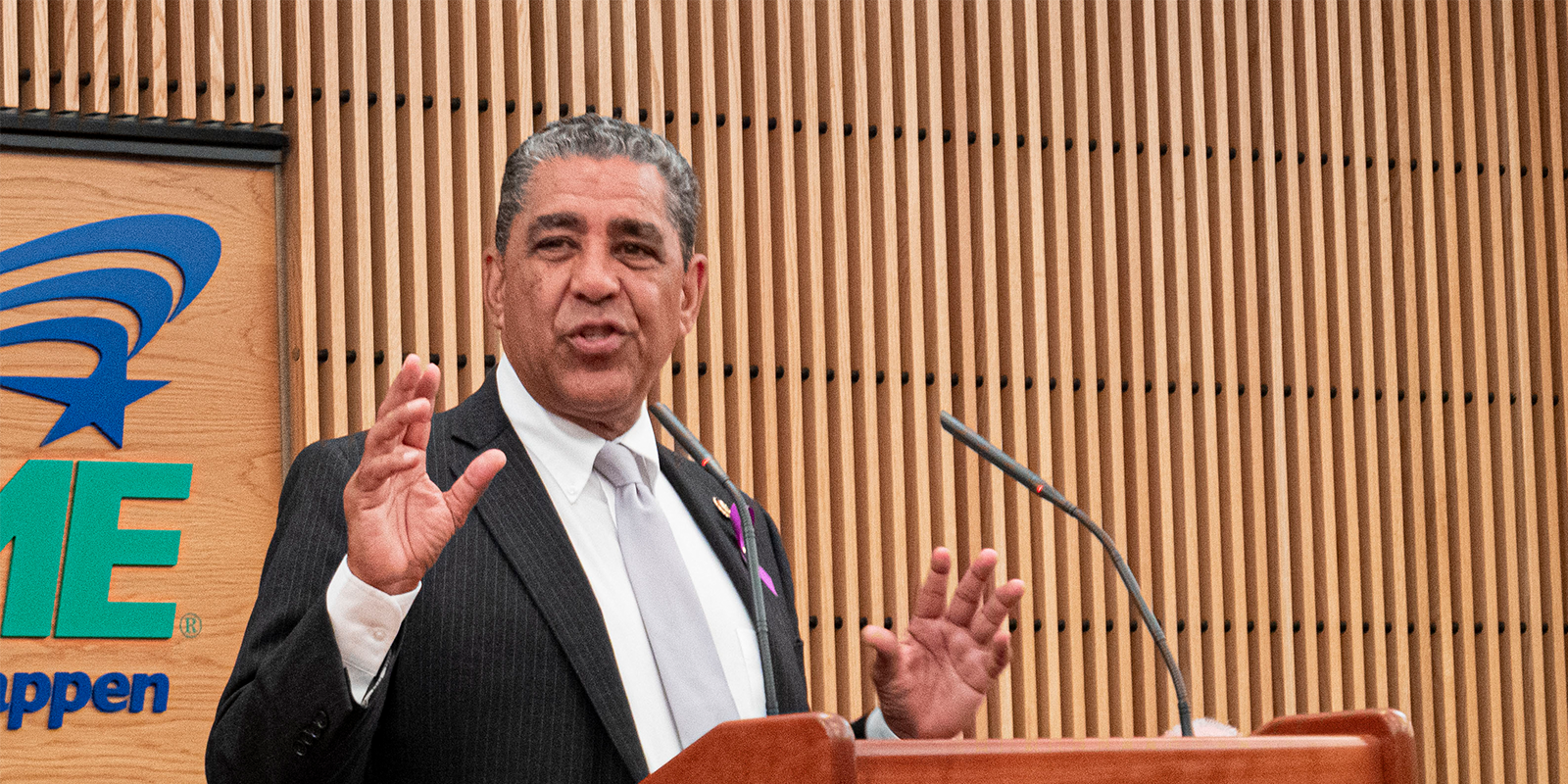New York Congressman Adriano Espaillat joined AFSCME this week in celebrating Hispanic Heritage Month, a recognition of Hispanic and Latino Americans’ contributions to U.S. history, heritage and culture.
Espaillat, who represents New York’s 13th congressional district, is a Dominican immigrant and the first Dominican-American to serve in the U.S. Congress. He has served since 2017 and is also the chairman of the Congressional Hispanic Congress Task Force for Transportation, Infrastructure and Housing.
This year’s Hispanic Heritage Month celebration comes less than two months after a mass shooting in El Paso, Texas that targeted Mexican immigrants, leaving 22 people dead and 24 injured. It also comes as migrant children from Latin America continue to be separated from their parents at the U.S. border, then cruelly and inhumanely locked up in detention facilities.
Espaillat recalled that the Hispanic presence in the United States goes back to the roots of our nation and is evident even in the names of our states and cities: Florida, Colorado, Nevada, Texas, Los Angeles, San Francisco … the list goes on and on.
“When we celebrate Hispanic Heritage Month, we’re celebrating a whole experience that is deeply rooted in America,” he said.
Espaillat, whose pro-worker track record speaks for itself, also talked about his own experience helping organize workers in New York City, including 45,000 cab drivers who originally had few, if any, protections on the job.
AFSCME President Lee Saunders introduced Espaillat as a “very good friend of working people.” As a member of the New York Assembly, where he served before being elected to Congress, Espaillat also encouraged the construction and preservation of affordable housing; giving low-income day care workers the right to organize and obtain health care; and sponsored measures to improve hospital translation services.
Of the 1.4 million AFSCME members, roughly 14 percent are Hispanic. Their contributions to their communities are felt every day. During Hispanic Heritage Month, we honor the sacrifices they make as public service workers.
